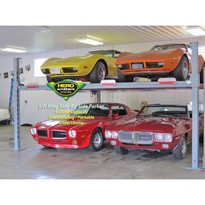Who among mechanical engineers will have to take down their company sign? And who will prosper instead? There is no clear answer. At best forecasts can be made enabled by clear rules, which the automation technology of the future will follow. Those who succeed in reducing the majority of their problem areas have the best chance of avoiding the worst-case scenario.
Topics such as energy technology, including decentralised control technology or the establishment of energy management systems must be on the agenda for mechanical engineering companies, just as intelligent sensors and autonomous cable monitoring systems, to name just a few. And geopolitically too, both small and large companies have to stay on the ball. Those who are negligent today about export and obtaining country-specific approvals or internationally binding guidelines and laws are jeopardising their good business relationships and not least their existence.
Missing certificate for cables means the red card from customs
For plant constructors, it is helpful to have a closer look at the product data sheet when purchasing components such as Treotham’s igus chainflex cables. If you find information there, such as country-specific approvals called UL, EAC CTP or DNV GL, you can confidently place your order. The same applies to national and international guidelines such as RoHS or REACH, which protect the environment and health. One who buys cheap ultimately pays double the price and also often gets the red card from customs during shipping and export to the customer. Not infrequently, it means: "Unapproved components are not allowed for the time being." Since a long time, topics such as the approval or compliance of cables and other components are not issues that should be left to the purchasing department alone for budgetary purposes. For an estimated 60 percent of installed electrical systems – measured in terms of the total extent of a manufacturing plant – the installation of cables without approval has far-reaching economic consequences. Of course, it is possible to subsequently get such an approval for almost every plant in the scope of the commissioning on site. However, it will likely cost a lot more money due to delays in the start of production, longer required service staff at the customer and last but not least the external inspectors. Not to mention the negative impacts on your own image and customer relationships.
Safety through a multitude of tests
If, on the other hand, you already invest time in the planning phase for the selection of approved, certified and compliant cables, such as those in the igus chainflex cables, your overall process becomes leaner and more efficient. The range of cables could not be more diverse. There are over a thousand types of approved control cables, servo cables, motor cables and robot cables, bus cables, data cables, encoder cables or fibre optic cables. For every metre of the chainflex cables that the customer plans and installs in their machine, a large number of approvals assure compliance with the rules, unrestricted reliability and a long service life. Companies such as igus confront the high and dynamic market requirements through constant advancements in the in-house test laboratory. Among others, chainflex cables for moving applications in energy chains or for robotic applications are tested here for operational reliability. The result: valuable insights for research as well as development and the increase in product quality for the customer. The performance of human and machine is impressive and is also very unusual: on more than 2,750 m2 floor area, igus carries out test series for cables in endurance tests in e-chain movements. That surpasses what all well-known manufacturers achieve combined. A closer look at the details reveals the high standards that the motion plastics specialist sets: 800 tests on chainflex cables on average, in parallel(!). That adds up to more than 2 billion test strokes per year. And that's not all: 292 million double strokes for production monitoring resulting from approximately 1,561 production monitoring tests per year. This performance is also achieved thanks to the 63 test facilities, where just under 1.4 million electrical measurements are carried out in twelve months. The whole thing can only be topped up by more than 3,500 tests on the cables, i.e. every year. All the parameters to be assumed are simulated using a climate chamber, external tests, a noise chamber and 130-metre-long travel or robot systems. This large number of test series and the results collected over the last 20 years now provide every customer with a clear answer to the applicability of their chosen cable for their specific needs in the igus online service life calculator. If the service life result does not fit or is too good, a less sophisticated chainflex alternative can always be selected and recalculated. An absolutely unique feature is the option to secure a guarantee from igus for 36 months or alternatively for 10 million cycles for a chainflex cable.
All for one: chainflex cables and their many approvals
An important element in the complex quality assurance process are also tests according to various guidelines, such as for the UL approval. Mechanical engineers need them for export and successful, smooth commissioning in the USA and Canada. Cables used in maritime environments such as oil rigs, gas drilling platforms or pipe-laying vessels are prepared for approval by the DNV GL in the igus laboratory. The EAC and the CTP for the Eastern European region, above all for Russia, are similar to what the UL certificate is for North America. Regardless of the location where a semiconductor or pharmaceutical production facility is running, the chainflex cables used here always require proof of their cleanroom suitability. The foundations for this test by the Fraunhofer IPA (Institute for Manufacturing Engineering and Automation) are also laid at the igus test laboratory. Similarly designed is the test procedure for RoHS and REACH approval or conformity, which, among others, refer to the restriction of hazardous substances. It does not matter which specific approval is required. Only when all the traffic lights in the igus test laboratory are green will the external inspectors of the independent bodies, agencies and organisations are brought on site. After numerous stringent tests, they award the valuable approval certificates for the different types of cables. Due to its worldwide offices, customers can source the same chainflex qualities on every continent in the world. In the 34 branches worldwide and 51 dealers (including Treotham in Australia and New Zealand), more than 1,354 cables types can be ordered without any problems, without minimum order quantities, minimum quantities, minimum quantity surcharges and, of course, without cutting charge. All that the customer needs is some time. Because only then can the best possible choice be made from the huge assortment of types. And that's impressive: 1,044 types with UL/CSA approval, 919 NFPA-79/2012-compliant types, 1,023 types with CTP approval, 1,268 types with EAC approval, 387 types with Germanischer Lloyd/DNV approval and 918 types with cleanroom classification (classes 1 and 2).
Types of approval: Details matter
The immense technical performance behind development, production and laboratory testing can only be measured by taking a close look at the stringently set parameters, which must be fully and demonstrably fulfilled before an approval is granted. The UL approval for North America is likely to be one of the most important at present due to the tough economic policy, particularly when exporting machinery to the United States should occur smoothly. Because this approval convinces the independent inspector from the Nationally Recognized Testing Laboratory and the so called Electrical Inspector (authority having jurisdiction) respectively of the quality and safety of a machine. Experienced mechanical engineers with long-standing US relationships know that regulatory requirements vary from state to state. All the companies that adhere to the highest standard – the UL approval – have maximum flexibility and freedom. Topics such as the compatibility of the cables to the large number of all US network systems play just as important a role in the UL approval as the different requirements for feeder circuits or branch circuits. Plant manufacturers with UL-approved cables are on the safe side throughout North America.
On the other side of the world – more specifically in Russia and its neighbouring countries – the EAC/CTP approval is expected in most cases by customers and customs. This certificate is the official proof of compliance with the harmonised technical regulations (TR ZU) of the participating countries of the Eurasian Economic Union (EAEU). The CTP standard focuses on the fire behaviour of cables and the flame retardancy of the materials used.
On water, on land and in the air
At least as complex, but completely independent of national borders is the DNV-GL approval. This approval for use in the maritime environment focuses on topics such as the Federal Maritime Responsibilities Act or the Ship Safety Act. Today, material is only approved by the DNV GL, which takes into account the so-called Class Rules for the operation of machines in the maritime environment. Pipe handling systems or pipe-laying ships were hardly automated until very recently, which required completely new test methods for permanently moving cables in e-chains. And to date, only chainflex cables meet these special requirements and withstand the complex test procedures. Approved are only those that incorporate all parameters that ensure safe and stable operation of offshore installations. Specifically, for example, operating temperatures down to -40°C or the UV resistance of chainflex cables. Incidentally, this also applies to a very sensitive topic in the maritime environment, working with oil. The chainflex cables are oil-resistant according to MUD NEK606; this means maximum safety for an oil rig.
This safety can be had with the RoHS II approval, which is offered by Treotham for its igus chainflex cables. RoHS stands for "Restriction of Hazardous Substances" and regulates the use of selected hazardous substances in cables such as phthalates, also known as plasticisers. REACH has a similar significance for igus. This European Union regulation has been adopted to improve the protection of human health and the environment from the risks posed by chemicals. REACH applies to all chemical substances and assumes the burden of proof on companies. For Treotham, this means there is complete proof that all materials used in the jacketing of igus chainflex cables are known and their processing and placement on the market is safe and manageable.
Maximum safety and, above all, absolute purity are also important in the regulated environment of semiconductors, medical devices and pharmaceutical production. This purity grade for its chainflex cables can be demonstrated by igus through the IPA for cleanroom classes 1 and 2. And they should know it: Only those that fulfil all conditions will receive the "Tested Device" certificate issued by the independent Fraunhofer Institut – and their cables and components are allowed to be offered, for example, for manufacturing plants for medical products. With its variety of chainflex cables available from stock, the quality assurance measures in the igus laboratory and, last but not least, the enormous and unrivalled variety of approvals and certificates, the Cologne-based company is already thinking about tomorrow and making a valuable contribution to the export and future viability of German mechanical and plant engineering and therefore nobody needs to take their company signboard down.


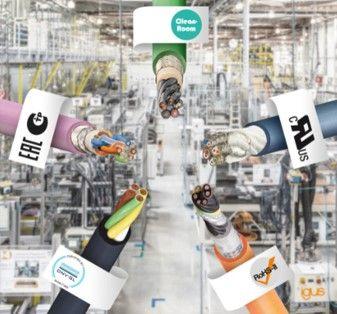
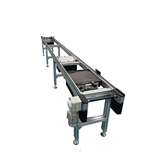
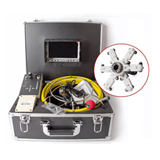
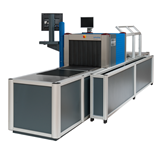

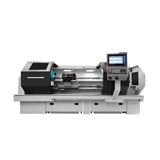

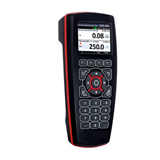

-160x160-state_article-rel-cat.png)
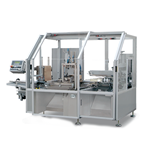




-160x160-state_article-rel-cat.png)
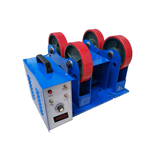

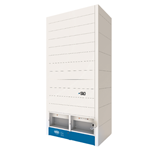
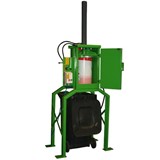
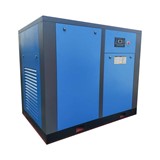
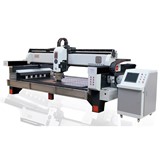

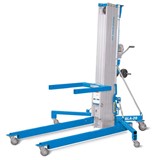
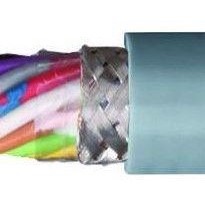
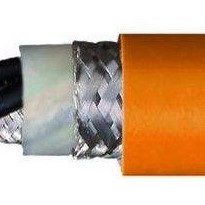
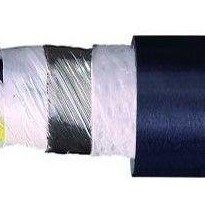
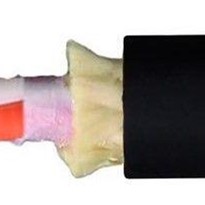
-205x205.jpg)


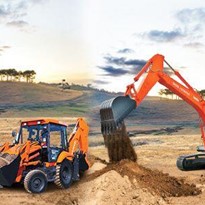
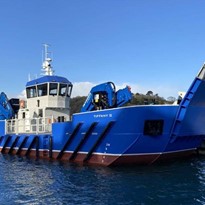

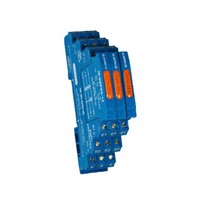
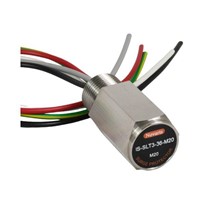
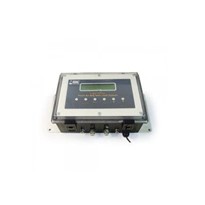
-205x205.jpg)
